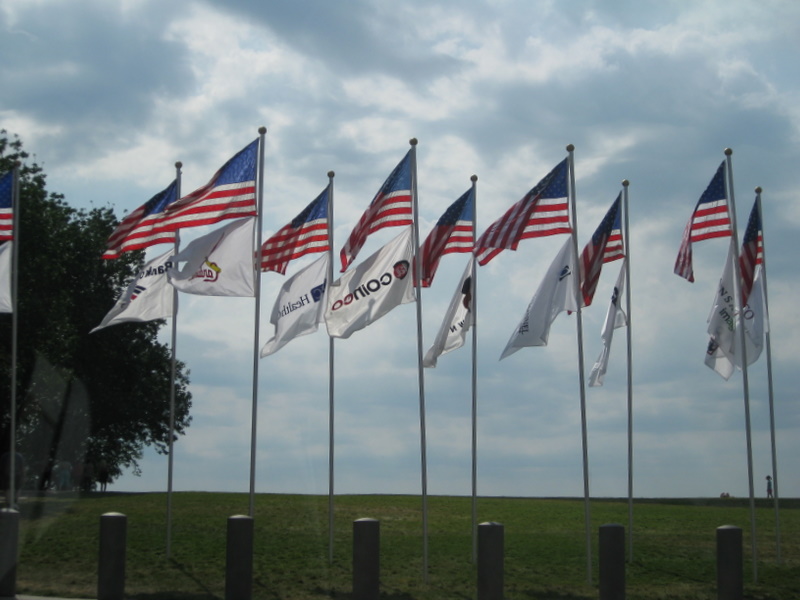United corporations of America
As part of the biggest Fourth of July celebration in St. Louis, Missouri, one could see corporate flags waving on the same staffs as American flags, which is apparently exactly where they belong. To me, this arrangement symbolizes the almost complete corporate take-over of the United States.
 We’re in an ominous environment right now. We have a thoroughly corrupt Congress (Dick Durbin: “The banks frankly own the place”) and a Supreme Court filled with corporation-idolizing free market fundamentalists. If you think it’s already bad, here’s what’s about to happen. This upcoming ruling by the United States Supreme Court will make clean money legislation unworkable. Citizens United was apparently just the beginning of a terrible trend.
There are relatively few politicians speaking up with passion. Sheldon Whitehouse is one of the few. We need massive marches across America. We need millions of people to turn off their damned TVs and iPods and get up and march, but I don't see it happening. Most of the people I talk with don't care that money buys elections, even while they go to Fourth of July celebrations and give lip service to "America is the world's greatest country."
We’re in an ominous environment right now. We have a thoroughly corrupt Congress (Dick Durbin: “The banks frankly own the place”) and a Supreme Court filled with corporation-idolizing free market fundamentalists. If you think it’s already bad, here’s what’s about to happen. This upcoming ruling by the United States Supreme Court will make clean money legislation unworkable. Citizens United was apparently just the beginning of a terrible trend.
There are relatively few politicians speaking up with passion. Sheldon Whitehouse is one of the few. We need massive marches across America. We need millions of people to turn off their damned TVs and iPods and get up and march, but I don't see it happening. Most of the people I talk with don't care that money buys elections, even while they go to Fourth of July celebrations and give lip service to "America is the world's greatest country."
